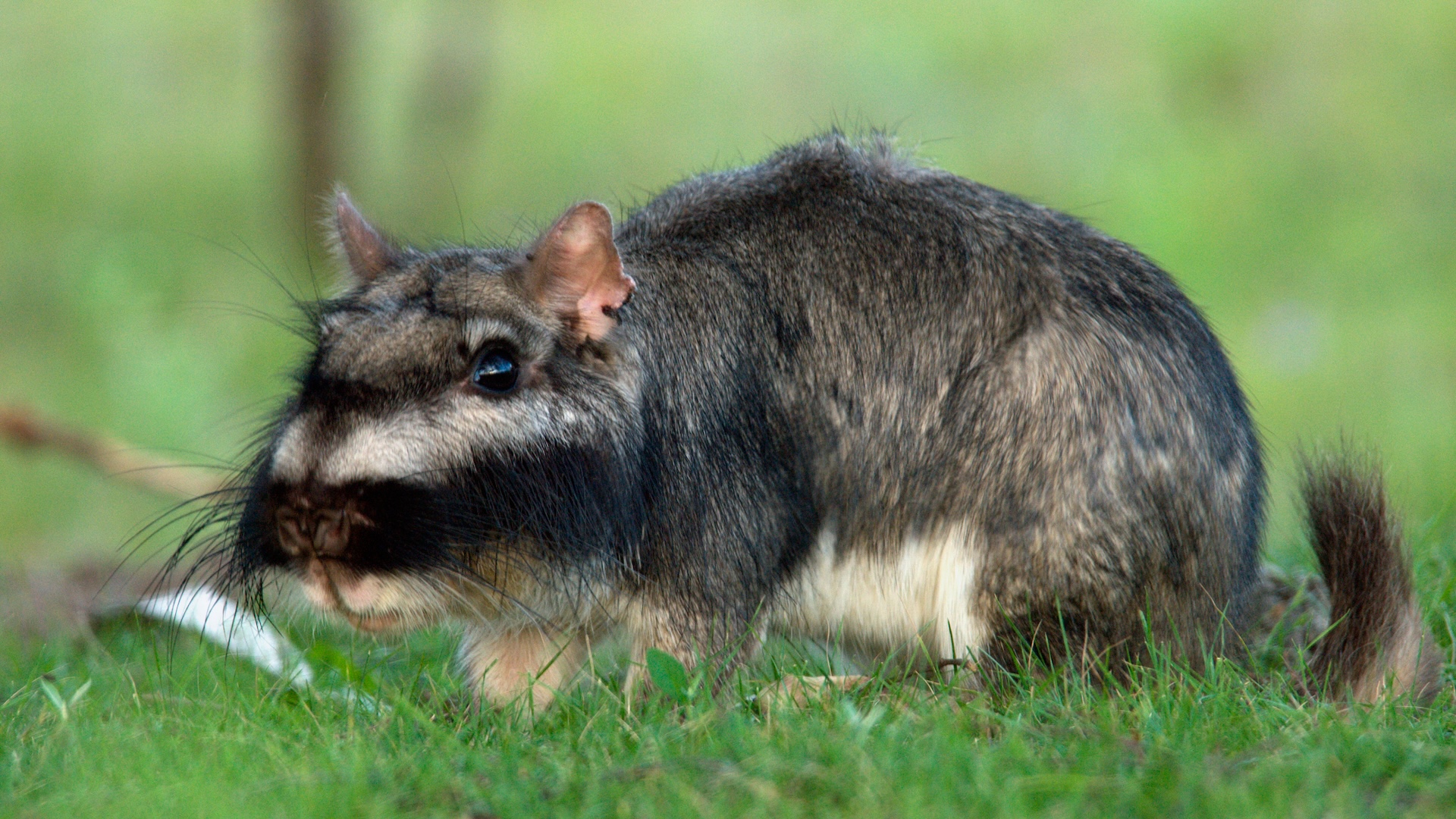Science News: Recent scientific discoveries and expert analysis
Read the latest science news and recent scientific discoveries on Live Science, where we've been reporting on groundbreaking advances for over 20 years. Our expert editors, writers and contributors are ready to guide you through today's most important breakthroughs in science with expert analysis, in-depth explainers and interesting articles, covering everything from space, technology, health, animals, planet Earth, and much more.

Explainers | Everything you need to know about the science news that matters.

Science Spotlight | Shining a light on new science transforming our world.
Latest news

Stabbed, cut, attacked, twisted — scientists subject new stretchable battery to extreme torture, and it retained 90% of its capacity
By Ruari McCallion published
A new stretchable hydrogel battery can withstand extreme conditions and still operate effectively, scientists say.

Universe may revolve once every 500 billion years — and that could solve a problem that threatened to break cosmology
By Elana Spivack published
A slowly spinning universe could resolve a puzzle in physics known as the Hubble tension, a new model suggests.

Scientists hijacked the human eye to get it to see a brand-new color. It's called 'olo.'
By Nicoletta Lanese published
Using an experimental technique called "Oz," researchers stimulated the human retina such that people saw a brand-new color.

Measles has long-term health consequences
By Stephanie Pappas published
Measles can erase the immune system's "memory" and cause a rare but fatal health condition. The MMR vaccine prevents these repercussions, evidence shows.

The North Pole could wander nearly 90 feet west by the end of the century
By Skyler Ware published
As climate change melts ice sheets and glaciers, water is being redistributed across the globe — and could end up moving the point of Earth's axis of rotation.

Student accidentally creates 'shape-recovering liquid' that's an exception to the laws of thermodynamics
By Elana Spivack published
A graduate student accidentally created a blend of oil, water and nickel particles that formed an unexpected shape.

Is getting an IUD painful?
By Marilyn Perkins published
People experience different amounts of pain during IUD insertion, but there are a number of pain-relief options available to patients getting the contraceptive.

Weird repeating nova explosion is one of the hottest blasts ever seen
By Shreejaya Karantha published
Researchers conducted the first-ever near-infrared analysis of an extragalactic recurrent nova and found it is one of the hottest nova explosions ever discovered.

Two planets will form a 'smiley face' with the moon on April 25
By Pandora Dewan published
A rare 'smiley face' triple conjunction is coming to Earth's morning skies on April 25, when Venus, Saturn and the crescent moon form a celestial smirk near the horizon.

Stone Age tombs for Irish royalty aren't what they seem, new DNA analysis reveals
By Kristina Killgrove published
A reanalysis of ancient DNA shows that a major cultural change took place in Ireland after four centuries of farming.

TSMC's upcoming 2nm microchip is a breakthrough. Here's what it means for the future of tech — from AI to smartphones.
By Domenico Vicinanza published
Taiwanese manufacturer TSMC will begin producing the chips from the second half of this year.

The universe's 'missing matter' may have finally been found
By Joanna Thompson published
About half of the non-dark matter in the universe cannot be accounted for by stars and galaxies alone. Now, scientists say previously undetected clouds of hydrogen gas could finally reveal it.

Experimental 'Ozempic pill' shows promise in treating type 2 diabetes
By Nicoletta Lanese published
The drugmaker Lilly announced topline results of a clinical trial of a new pill in the same drug class as injectables like Ozempic.

NASA rover reveals signs of crucial life-sustaining process on Mars
By Ben Turner published
Samples drilled by the Curiosity rover on Mars have revealed abundant signs of a carbon cycle that remained hidden from orbital scans, alongside clues of how life may have been wiped out on the planet.

'Useless' female organ may actually support the ovaries, study finds
By Jess Thomson published
The rete ovarii, a poorly understood structure connected to the ovaries, may be much more essential to ovarian function than scientists initially thought.

A mysterious, 100-year solar cycle may have just restarted
By Harry Baker published
New research suggests that the unexpected intensity of the ongoing solar maximum may be partly tied to a lesser-known, 100-year solar cycle. If true, solar activity could spike further in the coming decades. But some experts are skeptical.

Lyrid meteor shower peaks after Easter: How to spot the most 'shooting stars'
By Jamie Carter last updated
Roughly 20 "shooting stars" per hour may be visible during the peak of the Lyrid meteor shower overnight on Monday, April 21-22.

'Quiet Chernobyl' changed Earth's surface so much the planet's mantle is still moving 80 years later
By Sascha Pare published
The land beneath the former Aral Sea in Kazakhstan and Uzbekistan is rising and will continue to do so for many decades. Now, scientists have an explanation that involves the sea drying up.

Scientists reveal 'most promising yet' signs of alien life on planet k2-18b
By Jess Thomson published
Scientists have discovered evidence of large quantities of biosignature chemicals — only known to be made by life on Earth — on an exoplanet more than 100 light-years away. It could be the most promising sign yet of alien life.
Sign up for the Live Science daily newsletter now
Get the world’s most fascinating discoveries delivered straight to your inbox.


